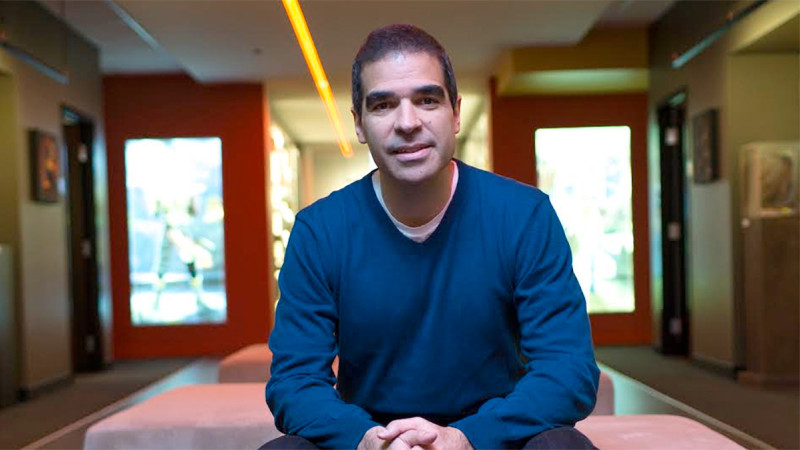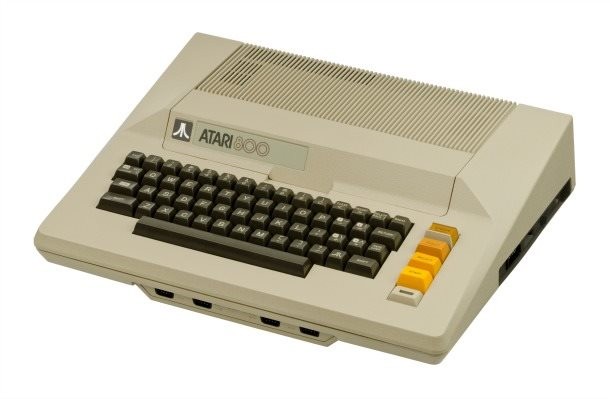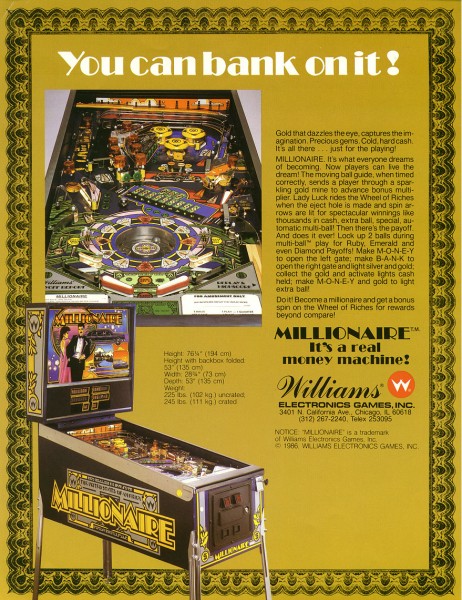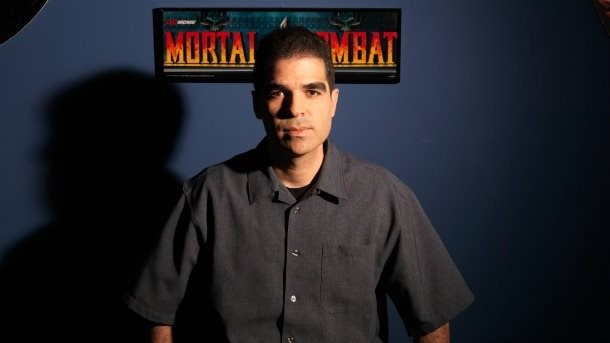

This interview was conducted by Andrew Reiner and Suriel Vazquez, and transcribed by Michael Leri. It was originally published on December 1, 2016.
Ed Boon has likely been making video games longer than you’ve been alive. Years before he became the steward of the Mortal Kombat franchise, Boon was programming pinball and arcade games for companies that no longer exist. But despite his over 30-year history in the industry, he’s only ever really had one job.
To get a full view of what such a storied career looks like, we talked with Boon about his early days at Williams Electronics, some of the names Mortal Kombat could have had, and what it’s like working on the same series for over two decades.
Andrew Reiner: Let’s go all the way back, way back to first time you saw some kind of interactive entertainment like this. Take us through that day.
Ed Boon: I think my first interaction with any kind of interactive game, per se, would probably be pinball machines. From way, way back in the days of grade school. Our bowling alley had a bunch of pinball machines and we would play them. At the time, there was a concept called winning a free game. So you would get good at a game and the whole theory was “play on this for long a time with a quarter.”
Reiner: The bowling alley. Do you remember the name of that?
I know it was on Dempster Street. That’s the only thing I know. Because I remember it was down one main street from my house. I think it might have been called East of Eden’s Bowling Alley because there was an Eden’s Expressway. And it was just east of it.
Reiner: Do you know what took its place? Do you know if it’s there right now?
Yes. A furniture design store or something like that.
Reiner: That’s unfortunate.
There’s very few arcade-type things like that anymore.
Reiner: Where did you grow up and go to that pinball arcade?
I was born in Rogers Park, which is in Chicago, and we moved to Evanston/Skokie which is like a suburb of Chicago when I was in grade school. Like fourth grade or something. I basically lived there until I went away to college – and then got this job, as a matter of fact. I lived there for about the first two years of my job as a pinball programmer, I was saving up to buy a condo because I was on this big kick of “I’m never going to pay rent in my life.”
Reiner: And you went to school where?
For college, I went to [the] University of Illinois at Urbana–Champaign. It’s probably about a two-hour, two-and-a-half hour drive from Chicago.
Reiner: So you’ve never lived anywhere outside of Illinois?
No. Never. But I’ve been outside of Illinois.

Reiner: Obviously, when we go to school we have a vision of a different future for ourselves. I was going to be an artist and draw Punisher comics. What were you envisioning as your potential career?
When I was in high school, there was the Atari 800, the Apple II, the Commodore 64, the VIC-20. All those kind of personal computers were becoming available. I do remember I did have an Atari 800 and I was programming in Basic, and then I started learning assembly language, and I started getting into that. That was like my hobby. Trying to figure out how graphics work and where to write in memory to get a pixel to show up on the screen. This thing called player-missile graphics and all these things.
So when I went to school I was like, “Well that will probably be my hobby all the time, but I’ll have a real job, a regular job to pay the bills.” That was kind of like my artistic output thing. But I lucked into this job through a little asterisk I put on my resume that got my foot in the door to be a pinball programmer, which kind of led me to being able to do video games. I never thought “I’m going to do video games” because I just for some reason didn’t think that was an option.
Suriel Vazquez: So when you made that transition from working on pinball machines to video game stuff, how much did you think your skills in designing pinball would transfer over to working on video games?
It was mainly programming. Ways of solving problems of writing software. For the longest time I called myself a programmer. I called myself the game’s programmer and the ideas for the game to me were like the easy part. The challenge was, “how do we make that happen? How do we make this spear come out of his hand? How do we make fire come out of his whatever?” You had a whole bunch of really good ideas, but the implementation part was [harder]. So you learn programming techniques and safe ways to program and quick ways to program. So I think those applied.
But the ideas were always like… you had more ideas than you had time to make them happen. So like I said before, the whole concept of a designer didn’t exist [until] many years later, even though I think I was deeply involved with design. I just kept calling myself a programmer. Those two jobs didn’t separate until many years down the line.

Reiner: When you went into your first day at work, your first game was Millionaire.
Yeah. They put me on a game called Millionaire, which was just being finished up and they said, “Oh, do lamp effects and display effects” which was like the closest you could get to video programming on a pinball machine. So I did that to kind of learn how the system works. How do you turn on a lamp? How do you make this flasher go off? How do you make the display show this animation? And kind of just getting used to it. Unfortunately, at the time I thought it was unfortunate, [but] apparently I did a pretty good job on it because they asked me to do it again for another machine and they asked me to do it again for another. And I wanted to have my own game [where] I would do the rules and the effects, the whole gambit of things that a game programmer does.
Reiner: Did you get to make your own table?
Well, I never designed the table but I eventually became a game programmer. I was the only programmer on the game. That was a game called Space Station, which was a sequel to a pinball machine called Space Shuttle. I did a game called Taxi, and finally I did a game called Black Knight 2000, which was a sequel to a huge, huge game in ‘80s. Black Knight 2000 was the last pinball machine that I had worked on before I moved downstairs to the video game guys who were working on NARC and Smash TV and all those kind of classic games of the ‘90s.
Reiner: Black Knight 2000, by the way, has the best soundtrack to date in a video game.
It does!
Suriel: That song is amazing! How did you guys go about making that dense of a song? Because it sounds very out of place in terms of putting it in a pinball machine.
That was totally the vision of a guy named Steve Ritchie. It was funny because he kept saying, “I want to hear a choir of angels singing.” It reminded me of how when people say what Freddy Mercury wanted for Bohemian Rhapsody was all the “Mama Mias” and stuff like that. And he kept pushing that. They went on the assembly line and they got these three or four ladies and they brought them into the studio to record these, “You got the power!” and all those lines that were in that game. And they sounded terrible. Oh my god. The two sound guys, Dan Forden and Brian Schmidt, who were the two audio guys in that game, they were just like, “This is not going to work. We have to get somebody who can actually sing.” I forgot who they found but they finally found somebody. But I remember that soundtrack to that game was certainly, especially for its time, was years ahead of its time. I still know the song in my head.
Suriel: Who does that voice… is that you?
The voice of the Black Knight?
Suriel: Yeah. The one who’s like “No way!”
Yeah, like “Give me your money!” [Laughs]. No that’s the designer, Steve Ritchie. He had a really deep voice. He’s the same voice that was the Mortal Kombat announcer for Mortal Kombat 2, 3, and maybe 4? He was “FINISH HIM!” I was the announcer for Mortal Kombat 1 and then Steve Ritchie took over as the announcer for Mortal Kombat 2, 3, and 4.

Reiner: Can you recall the name of that first pinball game that you played? Do you remember the very first game you touched?
